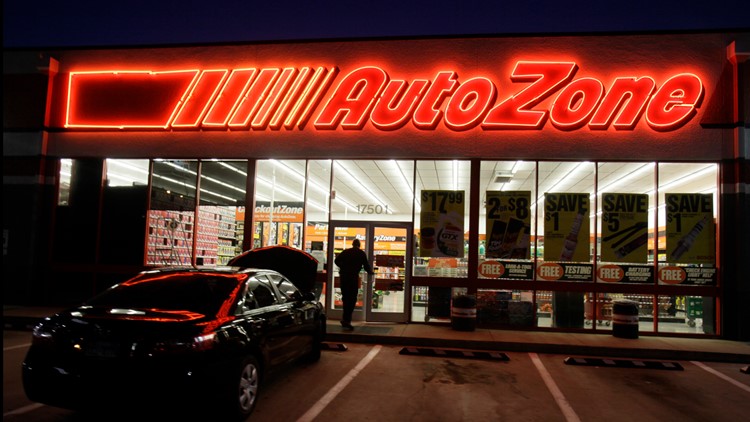California Attorney General Xavier Becerra Tuesday announced an $11 million settlement with AutoZone Inc. over allegations that the retailer violated state laws governing hazardous waste, hazardous materials and confidential consumer information.
The lawsuit -- filed against the 600-store auto parts chain by the Attorney General's Office, the Los Angeles City Attorney's Office and the district attorneys of 10 California counties, including San Diego and Riverside -- stemmed from 56 inspections of trash bins at 49 AutoZone facilities between August 2013 and September 2015.
Those inspections "found numerous instances of unlawful disposal of hazardous waste including batteries, aerosol cans, electronic devices, and hundreds of discarded bottles and other receptacles containing automotive fluids and other regulated hazardous waste," according to a statement released by Becerra's office, which said the investigation "revealed that AutoZone allowed its customers to deposit hazardous automotive fluids and other waste items into regular trash containers in AutoZone stores' parking lots throughout California."
AutoZone facilities in 45 counties were found by the prosecuting offices to have committed environmental violations, according to the Attorney General's Office, which estimated that AutoZone "illegally disposed of over five million hazardous waste items in California."
The settlement, under which AutoZone did not admit wrongdoing, requires the company to pay $8.9 million in civil penalties, $1.35 million for supplemental environmental projects and $750,000 for reimbursement of investigative and enforcement costs.
AutoZone will receive a $1 million credit against the penalties if it undertakes at least $2 million in environmental enhancement work not required by law.
The settlement also requires the company to undergo a compliance audit and a trash receptacle audit to ensure that hazardous waste and confidential consumer information is properly disposed of at all of its facilities, and comply with 23 requirements involving environmental protection and confidential consumer information protection laws, according to the Attorney General's Office.



